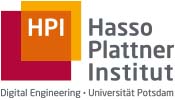Securing the Global Supply Chain
Compromised supply chains have become one of the biggest risks to businesses around the world. But what are the barriers to secure supply chains?
We conduct a worldwide study with professionals to find solutions to improve supply chain cybersecurity.
What is the Problem?
Different companies have different approaches for assessing and monitoring a supplier’s cybersecurity. As unique as customer-supplier relationships may be, some struggles and good practices may be applicable to all of them. Most suppliers (98%) are small and medium-sized enterprises (SMEs)1. However, limited resources, knowledge gaps, and stretched security teams put SMEs at high risk. It is hence not surprising that 54% of large companies named third party risk as their biggest barrier to cyber resilience2. But how can this barrier be reduced? How can the cybersecurity of SMEs be improved, thereby improving the security of the entire supply chain?
1 Harvard Business Review2 World Economic Forum: Global Security Outlook 2025
Research and early results
In this research, we conduct interviews to understand how a supplier’s cybersecurity is evaluated, characterize buyer-supplier communication and learn about ways how companies helped their suppliers. Early results suggest that the way companies engage suppliers matters. Human interactions seem to be crucial to building good relationships. In turn, good relationships lead to suppliers having the trust to ask questions, to disclose vulnerabilities, and to collaboratively work together to improve security. Furthermore, the way of setting and communicating expectations impacts suppliers’ security progress and engagement.
What can you do?
Are you professionally involved in managing your company’s supply chain or in evaluating suppliers (i.e., you are a governance / risk / compliance officer, procurement professional, information security manager, supplier, etc.)? Then we are eager to learn about your problems and best practices in buyer-supplier relationships and initiation processes.
The interviews are semi-structured, online, and only take 30 minutes. All answers will be anonymized. We are happy to interview you in English, German, or French.
If you are interested in sharing and getting new insights, please reach out to us.
About us
This study is embedded in a joint research project of the Massachusetts Institute of Technology in Cambridge (MIT) and the Hasso-Plattner-Institute in Potsdam (HPI).
Contact
Hanna Schall
Phone: +49 331 5509 228
Mail: hanna.schall -AT- student.hpi.de

